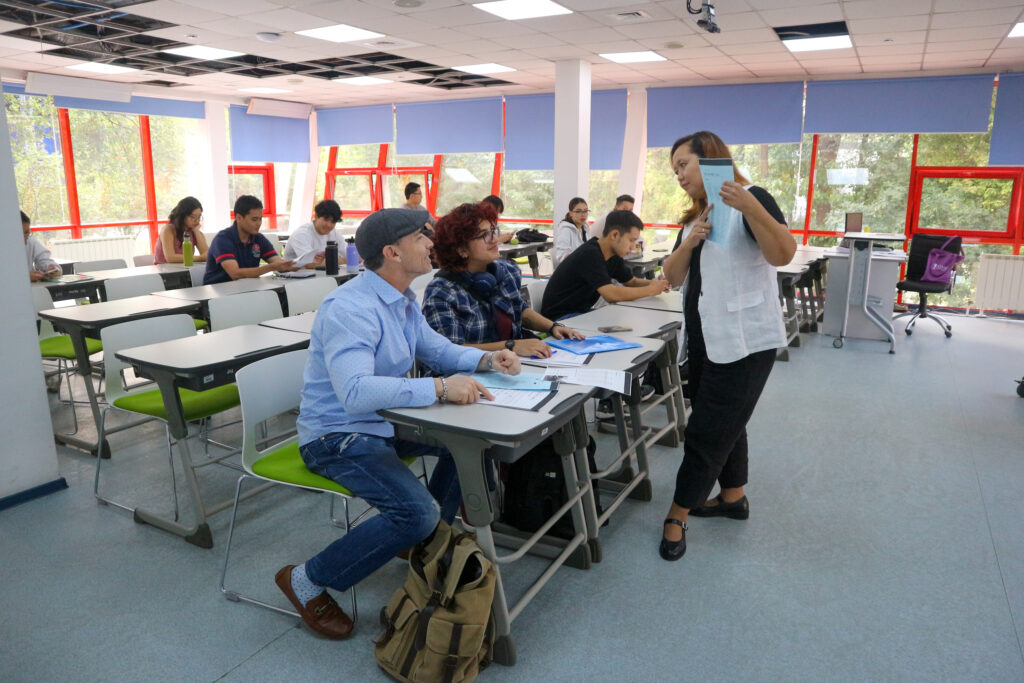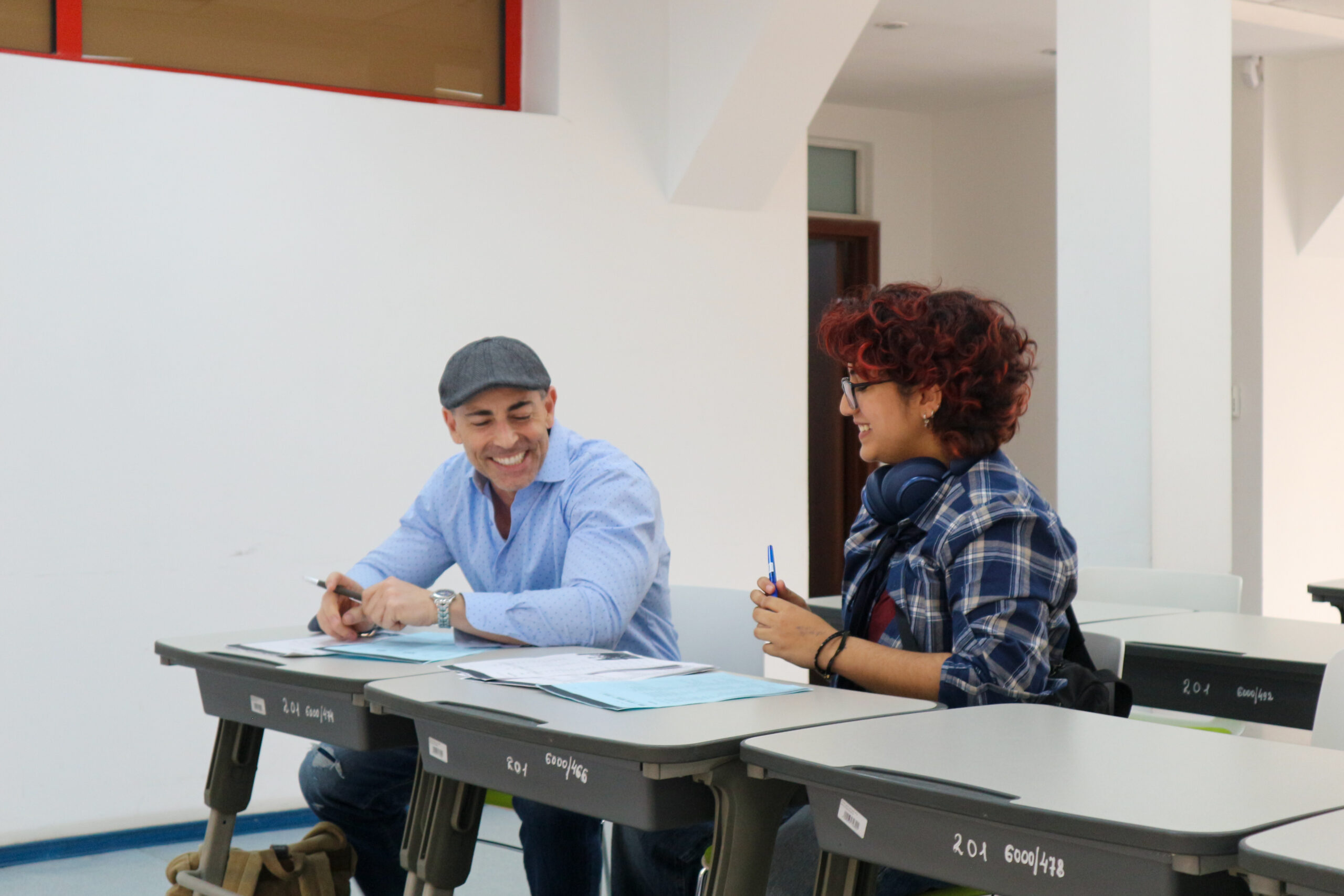When I chose KIMEP University, I was drawn in by what I considered an interesting, unique premise: a US-style liberal arts education, taught fully in English, in the heart of Kazakhstan’s beautiful city of Almaty. It seemed to me like the perfect place to experience cross-cultural exchange in a common language. For the most part, this promise holds true. But my day-to-day experience as a student has revealed a gap between the university’s marketing and its reality: Russian is everywhere, and it often leaves non-Russian speaking students feeling excluded, both academically and socially.
One of my earliest experiences at KIMEP illustrates this. I joined a sports class, excited to learn a sport I adored and get to know my classmates. But the entire session was taught in Russian. My peers communicated in Russian too, meaning I missed out on feedback from my instructor and struggled to feel part of the team. In another lecture, when our professor asked us to discuss in groups, my group quickly switched to Russian. I explained I don’t speak it, to which I was told, “Well, he (one of the students in my group) doesn’t speak English.” That exchange was awkward, but to me it also felt symptomatic of a larger institutional problem. If KIMEP prides itself on accepting students with English proficiency and producing graduates with professional-level English qualifications, how are students who apparently don’t speak English finding their way into programs that require it?
My impressions are not unique to me: “When I first arrived at KIMEP, I was struck by how quickly students defaulted to Russian in their classroom interactions,” said Prof. Amanzhol Bekmagambetov, a member of the CSS faculty teaching Political Science.
“In my courses, I rely heavily on active learning strategies that require group discussions, and to my disappointment, students almost always switch to Russian—even though most of them can communicate quite well in English. I do not believe it would be right to enforce English in these situations, but I consistently encourage its use. To set the tone, I conduct all my classes and office hours exclusively in English, modeling the standard that I believe we should all strive toward,” Bekmagambetov said.

A similar experience happened on Orientation Day. I arrived early, excited, armed with a cup of coffee. The student guide gave the entire introduction in Russian, and when asked for a translation, simply stated he didn’t speak it. This was confusing to me, coming from a senior. A fellow student ended up translating for me. These moments are small, and, despite my overall positive experience at KIMEP, repeated often enough, have begun to give me the impression that if you don’t speak Russian, you will be left out.
This challenge went beyond the classrooms for me, which was not unexpected. Living in the dormitories, I was eager to build friendships with those with whom I shared a kitchen, laundry room and canteen everyday. I was invited to a group game, a sort of get-to-know-each-other activity. I joined the circle in my pajamas, smiling at the invitation. The game was played in Russian, and though a kind student explained to me the parts she thought mattered, I couldn’t truly participate. Time and again, despite my efforts to be social, I find myself on the outside of social interactions. Not because of any unkindness, but because English isn’t the default, even when and where it could be.
I want to emphasise something important here — English is not my native language either. I understand the frustration many feel with having to constantly communicate in a second language. But in environments with people from diverse backgrounds, it is easier to find common ground, and obviously fairer, to meet in a common language. My own immersion in the English language has given me the chance to make friends from around the world. Language can be the bridge to cultural exchange, not the barrier.
To be clear, my overall experience at KIMEP has been very positive, and I’m very grateful to be here. I have felt warmth and welcome from students, staff and faculty alike. The residential hall assistants did a good job organising a party for the new live-in students, and the classrooms are stimulating to be in.
Exchange programs are more effective when there is more genuine interaction and mutual appreciation among students. If non-Russian speaking students are left to form cliques, because they feel they cannot participate in the broader community, that exposure is lost for everyone.
As Dr. Christopher Bridges, Dean of Student Affairs at KIMEP, said, “At KIMEP, one of our goals is to help students grow their confidence in English while also recognizing the multilingual environment that is part of life in Kazakhstan. From Student Affairs, we try to encourage students to use every chance they have to strengthen their English, whether that’s in class, student organizations, or daily campus life. At the same time, language use across the university is something much bigger than my office alone, and it brings in a wide range of perspectives from across our community.”

